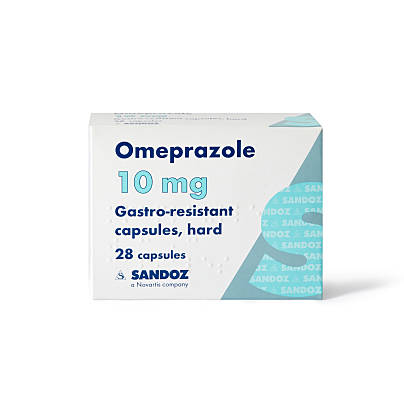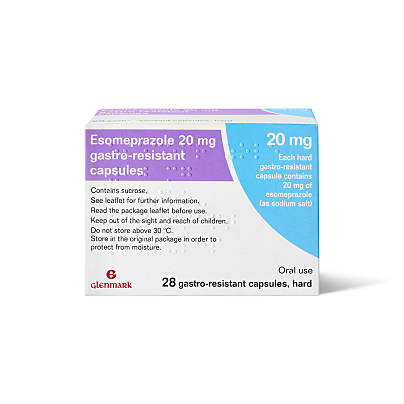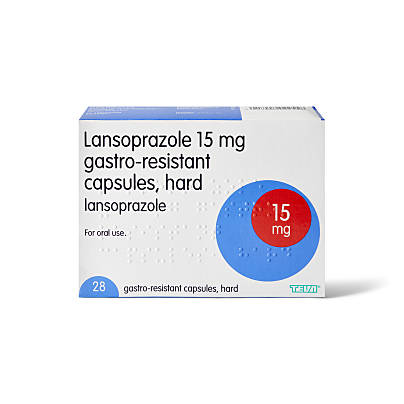Home remedies for heartburn

Medically reviewed by
Dr Crystal WyllieLast reviewed: 29 May 2024
Heartburn is a symptom of acid reflux that causes an uncomfortable sensation when stomach acid travels up toward the throat. While there are many medical treatments available to stop heartburn and treat acid reflux, there are also remedies you can try at home.
It’s important to remember that there is limited scientific research into how effective home remedies are, but many people believe that certain natural substances reduce their symptoms. You can also make certain lifestyle changes that may help reduce your symptoms.
If you keep getting heartburn, speak to a doctor to rule out underlying causes and get appropriate treatment. Read on to learn more about heartburn, treatments, and common home remedies.
Home remedies to relieve heartburn
Several home (natural) remedies claim to help with heartburn. There is limited scientific evidence on whether these are effective, but you may find that one or more of the naturally found substances in this list reduce your heartburn.
Remember that even natural substances can have harmful side effects or interact with other medications. Always:
- do your research carefully before you start taking anything new
- treat all natural remedies with caution and take small doses initially
- make sure you are aware of any interactions between medication or supplements you already take
- talk to your doctor if you have ongoing heartburn
Baking soda (sodium bicarbonate)
Sodium bicarbonate is the active ingredient in some medical treatments for heartburn and is often found in home cupboards as baking soda. It is a natural alkaline which neutralises stomach acid.
A 2022 review of medical studies showed sodium bicarbonate's effectiveness in treating heartburn when combined with other medicines, but doctors advise caution when using it as a home remedy. A small teaspoon dissolved in 125ml of warm water and taken 1 to 2 hours after a meal can provide immediate relief from heartburn but taking too much can lead to too much salt and alkaline in your body.
Talk to your doctor before you use baking soda as a home remedy for heartburn. If you are a child, pregnant, take certain medications or suffer from specific conditions, your doctor will advise you not to use baking soda to treat heartburn. If you have already been diagnosed with GERD (gastroesophageal reflux disease), you should not take baking soda as it can make chronic heartburn worse.
Side effects of sodium bicarbonate can include stomach cramps, wind and intense thirst.
Ginger
Ginger is commonly used to help with stomach issues and is well known for reducing nausea. It is thought that ginger reduces gastric contractions, which can push the acid from your stomach upwards.
Most of the research into ginger’s medicinal benefits focuses on how it treats nausea, so there is very little information on how effective it is for treating heartburn. However, a 2011 study showed that ginger effectively reduces inflammation, but this was a very small study where the effects were mostly seen in the colon rather than the oesophagus.
If you’re planning to take ginger to reduce heartburn, make sure you take it in small amounts only (no more than 4gm per day). Some studies have found that taking too much ginger can actually increase heartburn, so taking small doses can help with this. You can drink ginger in tea, eat it in your food, or take ginger powder or tablets.
It is rare to get side effects from taking ginger, although some people do report diarrhoea or sore throats.
Turmeric
Like ginger, the health benefits of turmeric are well known. Recent studies have proven its medicinal qualities, but there needs to be more research into how it helps with heartburn. Curcumin, the active ingredient in turmeric, is considered responsible for its medicinal benefits as it works as an antiviral, antibacterial and anti-inflammatory. However, it’s still no replacement for prescribed antiviral or antibiotic treatments for illness.
You can add turmeric powder to your food while cooking and drink turmeric tea, but you usually cannot get enough curcumin this way as the body does not absorb it very well. Piperine (found in black pepper) could help the body absorb curcumin, so natural supplements which combine turmeric and black pepper can help you get enough turmeric.
Turmeric supplements are not suitable if you use blood thinners or have diabetes. Note that some people report that taking turmeric worsens their heartburn.
Side effects from taking turmeric are generally mild and can include feeling or being sick, diarrhoea and dizziness.
Apple cider vinegar
When apple cider is fermented, it creates apple cider vinegar or acetic acid. People believe acetic acid has various health-giving properties, such as being an antioxidant, antiviral and antimicrobial. However, no scientific evidence indicates that it helps with heartburn.
If you have mild reflux and want to try apple cider vinegar as a treatment, mix a small amount (less than a tablespoon) into a glass of water and drink it before or after your meal.
Do not drink apple cider vinegar if you have moderate or severe heartburn or a GERD diagnosis. The acid can aggravate your oesophagus. You should not take apple cider vinegar if you take insulin or diuretics.
Side effects of drinking apple cider vinegar include making heartburn worse and causing changes to the enamel of your teeth.
Aloe vera juice
The medicinal properties of aloe vera are well known for treating sunburn or skin conditions. People also drink aloe vera juice to treat acid reflux as it slows down acid production in your stomach and reduces inflammation.
A study from 2015 found that drinking aloe vera juice that was purified and decolourised effectively reduced symptoms of acid reflux. The numbers involved in the research were small, but participants found few side effects and a significant improvement in their symptoms.
There are variations in the recommendations for how much aloe vera juice you should drink to treat heartburn. A suggested starting amount is 2 tablespoons, taken 30 minutes before you eat to see how you respond. You can dilute it with water or drink it with honey.
If you have diabetes, are pregnant or are breastfeeding, talk to your doctor before taking aloe vera, as it may not be safe for you.
Side effects of taking aloe vera gel include diarrhoea and stomach cramps.
Chamomile tea
People use chamomile tea to fall asleep and reduce their anxiety. Some people also think that it can treat stomach issues such as heartburn. While research has supported the idea that chamomile reduces stress, anxiety and depression, helps with blood sugar levels and has anti-cancer properties, there has been less work done on whether it helps with heartburn.
As stress is known to make heartburn worse, reducing the stress levels in your body may help reduce heartburn.
Most people drink chamomile tea without any side effects. In rare cases, it can cause an allergic reaction. If you drink chamomile tea and have shortness of breath, a skin rash and swelling around your face and throat, get immediate medical attention.
You should not take chamomile if you are on blood thinners such as warfarin. Chamomile makes your blood thinner and can increase the impact of this medication.
Deglycyrrhizinated liquorice (DGL)
DGL is a form of liquorice processed to be safer for long-term consumption. Many believe liquorice can help with respiratory infections, sore throats, ulcers and even viral infections like hepatitis C. A study from 2014 found that liquorice helps the body to create more mucus, which can help protect the stomach and oesophagus from the acid which causes heartburn. It’s important to remember that while DGL has been shown to be effective in some cases, it’s still no replacement for clinically advised medical treatments.
Liquorice is also known to have severe side effects, including heart attack, especially if taken in large quantities. The form of liquorice called DGL is safer to take as it has had glycyrrhizin removed. Glycyrrhizin is the element in liquorice that causes potentially severe issues with blood pressure and potassium levels.
Even though DGL is the safest form of liquorice, if you are pregnant, have heart issues or take medications that lower your potassium levels, talk to your doctor before you try DGL to be sure it is safe for you.
People usually take DGL for heartburn in tablets taken before meals. Although DGL is generally safe to take and has few side effects, people can still have an allergic reaction and may find that it interacts with existing medication. Talk to your doctor before you start taking DGL for heartburn.
Honey
For centuries, people have used honey, especially raw honey, for medicinal reasons. It is thought to be anti-inflammatory, rich in antioxidants and contains antibacterial and antiviral properties. Honey also increases the production of mucus, which counteracts acid in the stomach.
One review from 2013 concluded that honey coats the oesophagus and protects it from acid. This review also discusses that honey contains antioxidants that work against the free radicals that are likely to be involved in heartburn.
A suggested amount of honey is a 5ml spoon. You can drink it in tea or with milk if you don’t want to drink it on its own.
Taking honey is unlikely to give you side effects unless you are allergic to it. You can also safely take honey alongside medication for heartburn.
If you are diabetic, pregnant or taking any medication that affects your blood sugar, talk to your doctor before taking honey for heartburn.
Bananas
Bananas are naturally alkaline, so they could help to neutralise stomach acid. They are also rich in pectin, which helps food flow through the digestive tract.
Bananas become more alkaline as they get riper, so eating an unripe banana may not relieve heartburn symptoms as much as eating a ripe one.
There have been no scientific studies into the impact of bananas on acid reflux. Bananas are generally considered safe to eat with few side effects.
Chewing gum
Chewing gum reduces heartburn by increasing the number of times you swallow. Increased swallowing means the oesophagus can get rid of acid, which causes heartburn.
A study from 2005 showed an improvement in heartburn symptoms from chewing sugar-free gum for 30 minutes after eating a meal. The numbers involved in the study were small, so more research is needed.
If you try chewing gum to treat your heartburn, use sugar-free gum to avoid creating problems for your teeth.
Other ways to reduce heartburn
You can also reduce heartburn and acid reflux by making lifestyle changes such as:
Changing your eating and drinking habits
Eat smaller meals more frequently and take time to eat them slowly so your body can digest food more efficiently.
Leave 3 to 4 hours between eating and going to sleep so your body can properly digest the food in your stomach before lying down.
Keep a food diary to learn if something triggers your heartburn, and avoid eating or drinking those items. Common triggers include:
- caffeine
- alcohol
- citrus
- tomato-based products
- spice
- fizzy drinks
- peppermint
- chocolate
Reduce your alcohol intake, as alcohol is known to cause acid reflux. Drinking alcohol can also lead to dehydration which can make heartburn worse.
Eat a diet that is rich in fruit and vegetables. A study from 2017 found that increasing the intake of fruit and vegetables reduces the occurrence of heartburn.
Try to reduce stress and find ways to relax
Stress can increase the production of stomach acid and may make the oesophagus contractions irregular, leading to acid reflux and heartburn.
Finding ways to relax and reduce stress in your life can improve your heartburn by decreasing the production of acid and regulating the contractions of the oesophagus.
Raise the head of your bed
Many people find that heartburn is worse when they try to sleep. By raising the head of your bed by 8 inches, you can ensure that your chest and head are higher than your stomach when you sleep, preventing acid from your stomach from travelling up towards your throat.
Relieve pressure on your stomach
If your abdomen is under pressure, it may leak stomach acid back towards the throat. Excessive weight or wearing tight clothes around your waist can cause pressure on your stomach.
Wearing loose clothes around the waist and losing any excess weight can reduce the pressure on the abdomen.
Avoiding slouching after eating can also help reduce pressure on the stomach.
Stop smoking
Some medical studies have found a direct link between quitting smoking and a reduction in symptoms of acid reflux.
Smoking increases episodes of heartburn because it:
- relaxes the sphincter, which makes it easier for acid to travel out of the stomach
- reduces both the amount of saliva and the acid-neutralising elements in saliva, which can counteract the stomach acid
- can lead to a persistent cough which increases pressure on the abdomen
Heartburn: When should I see a doctor?
You should see a doctor for your heartburn if the symptoms are persistent or worsening. Heartburn can be a sign of GERD or other stomach conditions, so checking what is causing it is essential.
If home remedies and lifestyle changes have not improved your heartburn, you can try medications from a pharmacist before talking to your doctor. Over-the-counter medications include antacids, H2 receptor blockers and proton pump inhibitors (PPIs). Omeprazole, Lansoprazole and Esomeprazole are all examples of PPIs.

No results found.
Please check your spelling or try another treatment name.
Talk to your doctor about your heartburn if:
- you experience it most days for over 3 weeks
- medications and changes to your lifestyle are not making a difference
- you have other symptoms like unexplained weight loss, food not going down your throat, or regularly being sick
In summary
There are several home remedies said to help heartburn, but the scientific evidence is minimal. If you decide to try a natural remedy, research the potential side effects, interactions with other medications, and how best to take it. Always talk to your doctor if you have an existing health condition before you start taking natural supplements.
Lifestyle changes such as altering your eating habits, reducing stress, and stopping smoking can significantly reduce heartburn. Regular heartburn can be a sign of GERD or other conditions, so talk to your doctor if you are consistently experiencing heartburn and acid reflux.

Crystal qualified in Medicine at Barts and the London School of Medicine and Dentistry in 2010. She then trained as a GP in London hospitals and practices. She has a particular interest in reproductive, sexual, and women’s health.
Meet our doctorsLast reviewed: 29 May 2024
-
Can drinking alcohol cause acid reflux?, GI.md [accessed May 2024]
-
Eating, Diet, & Nutrition for GER & GERD, NIH [accessed May 2024]
-
Heartburn and acid reflux, NHS [accessed 10 May 2024]
-
Foods to help acid reflux, AARP.org [accessed May 2024]
-
Risk factors for gastroesophageal reflux disease: the role of diet, NIH [accessed May 2024]




(Reviews are for ZAVA UK)








